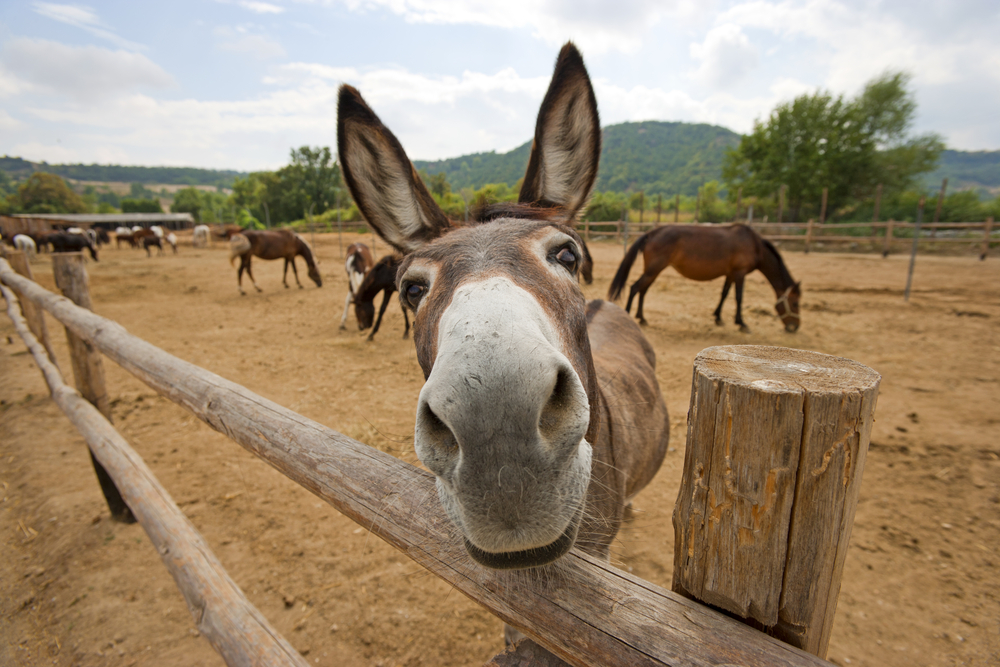When it comes to understanding the lifespan of our beloved donkeys, many potential owners and enthusiasts are curious about how long these gentle creatures typically thrive. Donkeys, known for their hardworking nature and incredible resilience, can live for many years if cared for properly. This article delves into the factors that influence their lifespan and provides insights into how long do donkeys usually live.
Donkeys are not just farm animals; they are companions and working partners that have been by our side for thousands of years. Their longevity is often linked to various elements, including breed, living conditions, and overall health care. In this article, we will explore these aspects to provide a comprehensive answer to the question, "how long do donkeys usually live?"
Understanding the lifespan of donkeys is essential for anyone considering adopting one. Whether you are looking to add a donkey to your family or simply want to learn more about these fascinating creatures, knowing their life expectancy can help you make informed decisions. Join us as we examine the lifespan of donkeys and what can be done to ensure they live long, healthy lives.
What Is the Average Lifespan of Donkeys?
On average, donkeys can live anywhere from 25 to 30 years, although some can live even longer with proper care. The lifespan can vary significantly based on factors such as breed, environment, and lifestyle.
How Do Different Breeds Affect Lifespan?
Just like dogs and cats, different breeds of donkeys may have different life expectancies. Here are some common breeds and their associated lifespans:
- Standard Donkeys: Typically live between 25-30 years.
- Miniature Donkeys: Known for their small stature, they can live up to 30-35 years.
- Large Donkeys: Breeds like the Mammoth Jackstock may have a shorter lifespan, averaging around 20-25 years.
What Factors Influence the Lifespan of Donkeys?
Several factors can affect how long donkeys usually live:
- Diet: A balanced diet rich in nutrients can lead to a longer lifespan.
- Healthcare: Regular veterinary check-ups and vaccinations prevent diseases.
- Living Conditions: A safe and comfortable environment is crucial for overall well-being.
- Exercise: Regular physical activity maintains their health and vitality.
How Can You Ensure a Long and Healthy Life for Your Donkey?
To maximize the lifespan of your donkey, consider the following care tips:
- Provide a balanced diet with hay, grains, and fresh water.
- Schedule regular veterinary visits for health check-ups.
- Ensure they have ample space to roam and graze.
- Engage them in daily physical activities to prevent obesity.
What Are Common Health Issues in Donkeys?
Being aware of common health issues can help in early detection and treatment:
- Laminitis: A painful condition affecting their hooves.
- Colic: Digestive issues that can be life-threatening.
- Obesity: Can lead to various health problems.
How Can You Support an Aging Donkey?
As donkeys age, they may require special care to maintain their quality of life:
- Adjust their diet to meet changing nutritional needs.
- Provide comfortable bedding and shelter.
- Monitor their health closely for any signs of illness.
Are There Any Notable Records of Long-Lived Donkeys?
Yes! There are several accounts of donkeys living well beyond the average lifespan. Some have reached ages of 40 years or more, often attributed to exceptional care and living conditions.
What Should You Consider Before Getting a Donkey?
Before bringing a donkey into your life, consider the following:
- Do you have enough space and resources to care for a donkey?
- Are you prepared for the long-term commitment of caring for a donkey for 25 years or more?
- Have you researched local laws and zoning regulations regarding donkey ownership?
Conclusion: How Long Do Donkeys Usually Live?
In summary, the question of how long do donkeys usually live can be answered with a general range of 25 to 30 years, although many can live longer with proper care. By understanding the factors that influence their lifespan and implementing best practices for their care, you can ensure that your donkey lives a long, healthy, and happy life. Whether you are a seasoned donkey owner or just starting, knowledge is key to fostering a fulfilling relationship with these remarkable animals.




